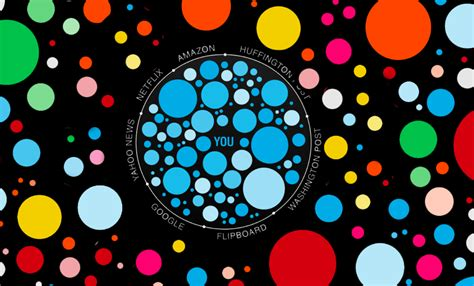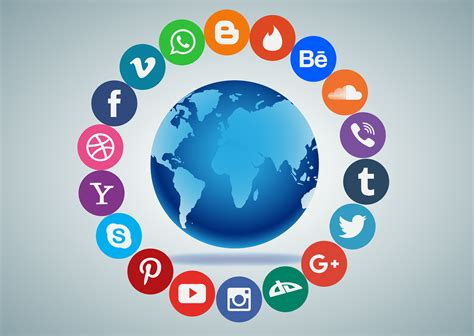How Social Media Shapes Our Minds and the Impact on Social Psychology
By Sania Goyal (2020MT10842)
In today's digital age, social media has become a ubiquitous presence in our lives, shaping the way we interact, share information, and construct our identities. Its pervasive influence has not only transformed communication but has also significantly impacted social psychology. From Facebook and Instagram to Twitter and TikTok, these platforms have not only revolutionized the way we communicate but have also fundamentally altered the field of social psychology. As we stand on the precipice of an even more digitally connected future, it's crucial to understand how social media is likely to continue shaping the way we think, feel, and behave as individuals and as a society.
Social Comparison Theory
One of the most striking ways social media influences the youth's social psychology is through constant social comparison. Leon Festinger's social comparison theory posits that individuals evaluate themselves by comparing their abilities, opinions, and experiences with others. Youth are exposed to an unending stream of picture-perfect moments from their peers. This creates an unhealthy atmosphere of comparison and insecurity.
Social media provides an ideal platform for this and amplifies this process, as users frequently engage in upward social comparisons, measuring themselves against individuals they perceive as superior. This can lead to envy, anxiety, and feelings of inadequacy, which impact self-esteem and mental well-being.
Scrolling through Facebook, you might see posts about friends getting promotions, buying houses, or traveling the world. This can spark feelings of envy or anxiety when comparing your own life's trajectory. Scrolling through Instagram, young individuals might encounter their friends' glamorous vacation photos, beautiful selfies, or perfectly plated meals. This constant exposure to others' seemingly perfect lives can lead to feelings of inadequacy and insecurity.
The Highlight Reel Effect
Social media often portrays a highlight reel of people's lives, omitting the mundane or challenging aspects. For youth, this can skew their perception of what a normal, fulfilling life should be. They may internalize the idea that everyone else is living an amazing life, while theirs falls short.
Imagine a young adult scrolling through TikTok, where they encounter videos showcasing exciting adventures, incredible talents, and extraordinary experiences. This can reinforce the belief that their own life is mundane in comparison.
The Echo Chamber Effect
Social media platforms foster the formation of online communities with shared interests and beliefs. While this can be positive, it can also reinforce group polarization—a phenomenon where people in a group become more extreme in their views when surrounded by like-minded individuals. Group dynamics on social media may lead to echo chambers and confirmation bias, hindering the open exchange of diverse viewpoints.
For instance, Twitter is known for its polarized discussions, where users find themselves engaging in heated debates within their political or ideological bubble, further amplifying divisions and reinforcing their pre-existing beliefs. Twitter has been criticized for creating echo chambers, where users primarily interact with those who share their political or ideological views, further polarizing society.
Cyberbullying and Online Aggression
The anonymity and detachment offered by social media can facilitate negative behaviors, including cyberbullying and online aggression. Social psychologists have begun to investigate the psychological impact of online harassment, highlighting the detrimental effects on mental health and its consequences for both victims and perpetrators. Cyberbullying can lead to increased levels of stress, depression, and social withdrawal.
The rise of cyberbullying on platforms like Twitter and Snapchat has led to increased research on the psychological consequences and strategies for prevention. Cases of cyberbullying on platforms like Instagram can have severe consequences, leading to stress, depression, and social withdrawal among victims.
Conclusion
As we look ahead to the future, it's evident that social media will play an increasingly significant role in shaping social psychology. While these platforms offer countless benefits, such as connectivity and information sharing, they also come with psychological challenges. It's essential for both young people and adults in their lives to be aware of these effects and to foster a healthy relationship with social media. While it presents both challenges and opportunities, understanding its impact is essential for individuals, researchers, and society as a whole. By recognizing the potential psychological effects and proactively addressing them, we can navigate the evolving digital landscape with greater awareness and resilience, ensuring a more positive and empowering future.








Reading this blog, I couldn't help but reflect on my own experiences with social media. It's fascinating yet alarming how platforms like Instagram and Facebook have reshaped our perceptions of self and others. The point about identity construction really hits home. I've caught myself more than once curating my online image, only to realize I'm contributing to the very cycle of comparison and self-esteem issues the blog discusses.
ReplyDeleteThe FOMO aspect is another relatable point. Seeing friends' posts about their adventures or achievements often leaves me questioning my own choices. It's a strange, bittersweet feeling – happy for them but also wondering if I'm missing out.
Your insights on the echo chamber effect are particularly relevant in today's polarized world. It's easy to get trapped in our bubbles, reinforcing our views without exposure to different perspectives.
This blog serves as a reminder of the complex relationship we have with social media. It's a tool for connection, yet it can also lead to feelings of inadequacy and isolation. It's about finding that balance and using these platforms mindfully.
Wow, this article really got me thinking about how much social media shapes our lives and messes with our heads. The part about creating our online personas really hit home and imagining these virtual versions of ourselves getting even fancier with AR and VR is kind of mind-blowing and a bit scary.
ReplyDeleteAnd seriously, FOMO is too real. I always catch myself feeling like I need to keep up with the perfect lives people showcase on Instagram, even though I know it's just a snippet of what's really going on. The Highlight Reel Effect, right? It's good the article called that out, reminding us that what we see isn't the whole story.
I didn't know there was a term for the whole 'living in a bubble' thing on social media, but the Echo Chamber Effect totally makes sense. It's worrying how it can make people more extreme in their beliefs and polarize things even more.
The part about cyberbullying hit me hard. It's messed up how the anonymity online can bring out the worst in people. Reading about the mental health toll it takes on victims and even the bullies themselves is just heartbreaking. We really need to work on making the online world a more positive place.
To sum it up, this article opened my eyes. Yeah, social media connects us, but it's got its issues. We need to be smart about how we use it and create a positive online community. It's a wake-up call to be more aware and not let these platforms mess with our heads too much.
~Ayush Kumar Baranwal (2020CH10082)
Your take on social media's impact is spot-on. It's crazy how these platforms influence our thoughts and actions. Excited to delve deeper into how it shapes our minds. Keep it up!
ReplyDelete